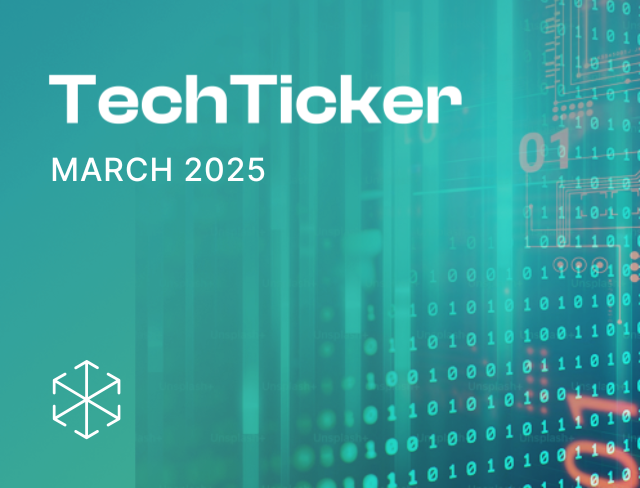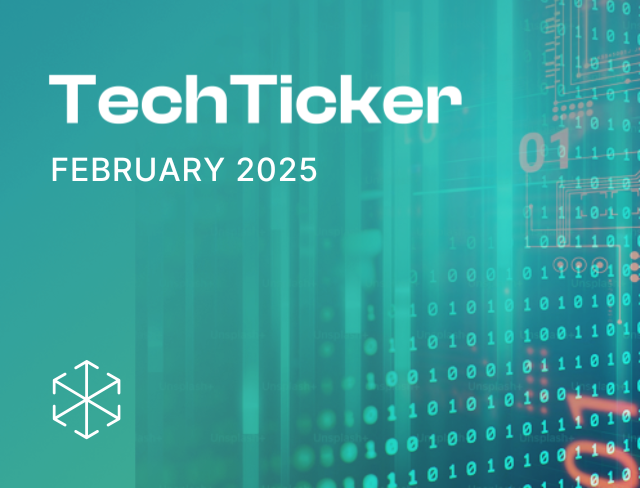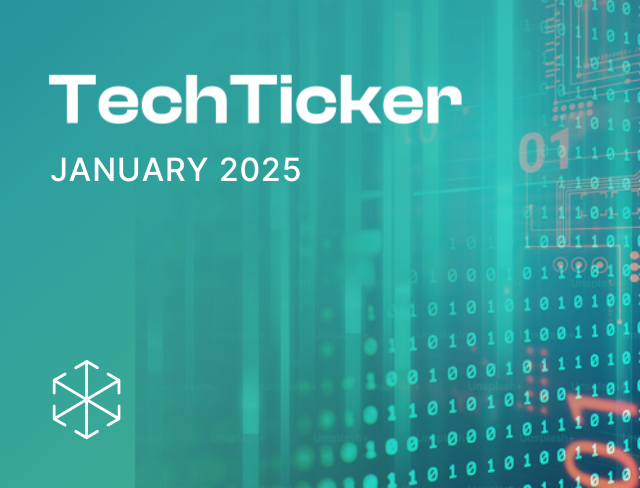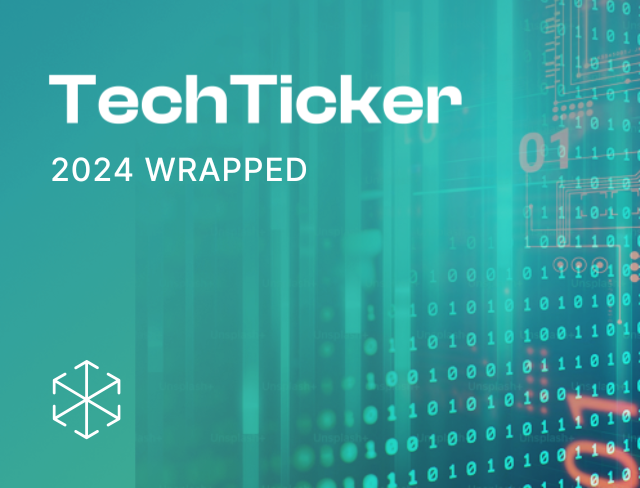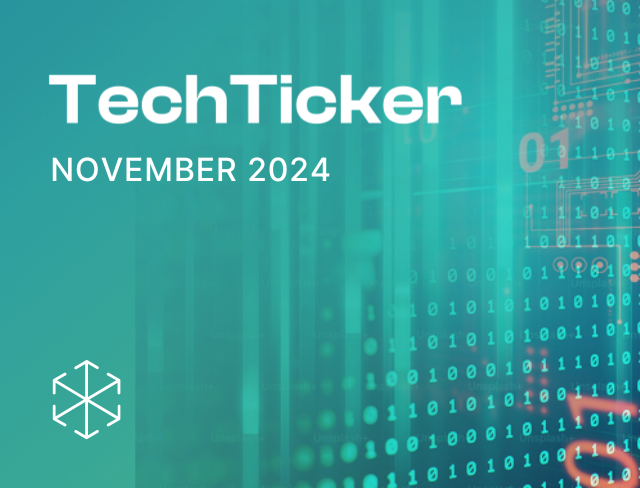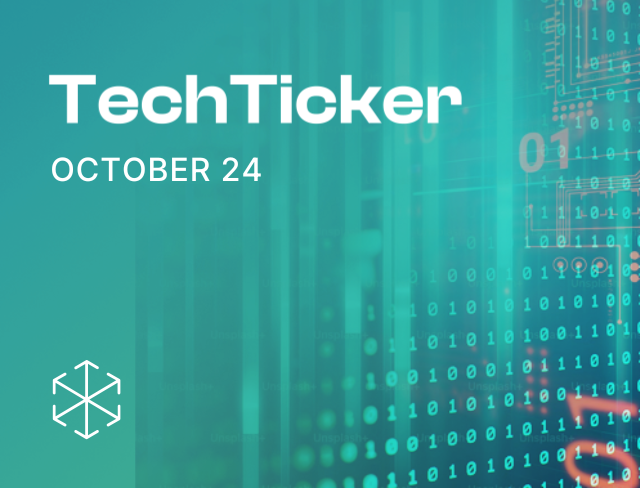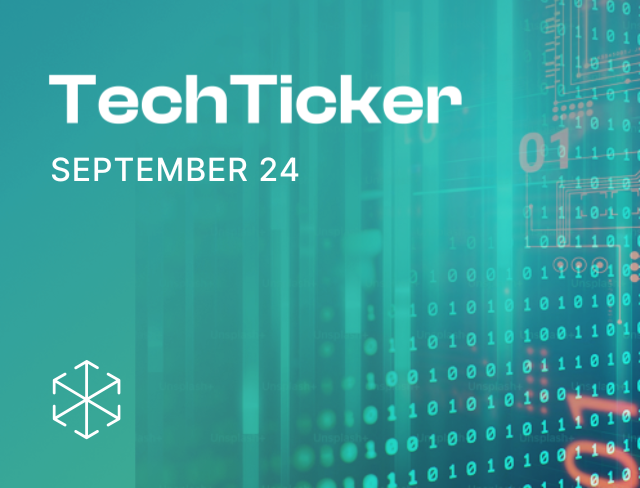Hi there, happy new year! Here’s kicking off 2021 with the latest in tech-law and policy developments, and then some! This being the first issue of the year, we’re also discussing key policy themes to look out for in 2021. So, bear with us for a slightly longer read, and let’s dive in.
Spotlight
The committee of experts (Committee), chaired by Infosys co-founder Kris Gopalakrishnan, released a revised report on non-personal data (NPD) (anonymized data/business information) for public comments, due on 27 January 2021. The new report suggests to create a separate regulator for NPD, share NPD for public good purposes like policy making/research, set up an innovation advisory body to make recommendations on data governance, and delete references to NPD from the upcoming Personal Data Protection Bill (PDP Bill). The Committee issued the first version of the report in July 2020. Read our analysis of the revised report including a detailed summary of both reports, here. Also read our comments to the Committee on its first report, here.
On the other hand, the Joint Parliamentary Committee (JPC) examining the PDP Bill indicated that it may not approve the current version of the Bill. The JPC had previously expressed its intention to expand the scope of the PDP Bill to include NPD as well.
Meanwhile, the ministry of science and technology released the draft science, technology and innovation (STI) policy 2020 for feedback. The policy aims to provide access to all the data used and generated in the STI ecosystem under ‘findable, accessible, interoperable and reusable’ terms. It also envisages a ‘one nation, one subscription policy’ to enable the government to negotiate with journal publishers and grant access to articles to individuals in India.
In a bid to improve access to internet across the country, the government of India approved a proposal to set up public Wi-Fi hotspots through its PM Wi-Fi Access Network Interface (PM-WANI) initiative. Under the proposal, local shop owners/cafes will act as Public Data Offices (PDOs) and supply bandwidth (internet) to users, and Public Data Office Aggregators (PDOAs) will aggregate bandwidth from licensed telecom/internet service providers. Unlike telcos, PDOs/PDOAs will not be required to pay license fee to the department of telecommunications for providing Wi-Fi services. PM-WANI is based on the telecom regulator’s recommendations on proliferation of broadband through open public Wi-Fi Networks.
Digital media, online content and intermediary liability
Curated content platforms revealed their intention to employ an implementation code to strengthen the existing industry self-regulatory code (Code), and garner government support. The implementation code will include details about laws that govern the conduct of content platforms, and allow them to appoint legal experts to their in-house complaints’ redressal committees. The ministry of information and broadcasting (MIB) has so far refused to endorse the Code. Meanwhile, Amit Khare, secretary I&B ministry revealed that the intention behind giving the MIB a say over online content was to bring content under the MIB, keep platforms under the ministry of electronics and information technology (MeitY), and ensure that online and offline content was not treated differently by multiple ministries.
Artificial intelligence
The MeitY is reportedly planning to pilot AI tools and solutions to implement its schemes and welfare programs. Following this, the MeitY may approach other government ministries and departments to release an ‘AI implementation policy for state-run services’. Earlier, the MeitY had planned to seek the approval of the union cabinet for the use of AI solutions in government operations, but various ministries said that AI would cause job losses. With the latest move, the MeitY aims to create jobs by enabling ‘judicious use’ of AI.
Fintech
The Reserve Bank of India (RBI) governor Shaktikanta Das indicated that the National Payments Corporation of India (NPCI) may convert itself into a for-profit entity. The move is aimed to give the NPCI muscle to combat competition from new players. The report surfaces as entities move to set up and operate pan-India retail payments network (like the NPCI) under the new umbrella entity framework. Read more about our take on legal and market developments in fintech in our new monthly newsletter, FinTales! Read past issues here, and subscribe by emailing contact@ikigailaw.com with the subject “Sign me up for FinTales”.
New at Ikigai
Earlier in July 2020, the Food Safety and Standards Authority of India (FSSAI) released a draft notification on the labelling of dairy analogues (products that are structured to mimic, or offered as an alternative/replacement to dairy products) for comments. Our team along with the Good Food Institute submitted a joint representation to the FSSAI, setting out factual and legal grounds advocating for fair labelling of plant-based dairy products.
Keeping up with the developments in the drones space, our team furnished comments to the ministry of civil aviation (MoCA) on the discussion draft of the National Unmanned Aircraft System (UAS) Traffic Management Policy. The Policy seeks to create the required infrastructure for UAS operations and spell out various aspects of UAS traffic management in India.
Together with Arushi Goel (a former civil judge), we submitted comments on the draft data protection regulatory framework released by the Abu Dhabi Global Market (ADGM). The proposed framework may align ADGM’s data protection law with the European Union’s GDPR, the UK Data Protection Act, 2018 and the Consultative Committee of the Convention for the protection of individuals with regard to the processing of personal data.
Shambhavi traced the evolution of medical devices (syringes/software driven devices) regulation in India, and our team along with Arushi Goel unpacked the concepts of crowdfunding, tokenisation, and real-estate investment trust (REIT).
Why should the business community invest in contracts that are a joy to read? If that intrigues you, give Anirudh a listen on a panel with Robert De Rooy and Camilla Anderson (whose illustrated contracts made their way to an art gallery!). He makes a case for how contracts can serve as a means to bridge the trust deficit with consumers.
Key policy themes to watch out for in 2021
We anticipate that the government’s flagship ‘Atmanirbhar Bharat’ policy will drive the tech law and policy debate in the country. Also, India may witness the passage of the PDP Bill in the early part of the year, and pick up the discourse on NPD. Data governance may intersect with anti-trust as one of the tools to regulate tech companies. Read Nehaa’s views to the Economic Times on the future of tech regulations, here.
2020 saw increased reliance on e-pharmacies, rapid adoption of telemedicine, and action around the National Digital Health Mission (through which the country aims to get more health providers into the ecosystem). In 2021, we may see movement around the draft E-pharmacy rules, employment of measures to strengthen the quality of care being provided through telemedicine, and increased access to omni-channel healthcare solutions. Additionally, the government may continue to promote indigenization and local manufacturing across segments in healthcare.
Last year, more states put in place an explicit ban on online games. In 2021, this trend might continue. While a ban on online chance games is expected, some states may go further and pull the plug on online skill games too, like Tamil Nadu did last year by banning rummy and poker (deemed as games of skill in other states). The conflict between states on whether a game is skill or chance based is a recurring trend. This is likely to continue till a uniform and quantifiable test to assess games is adopted by states. The government may also be keen to consider a central law on gaming, given the huge economic opportunity in the sector. Read Sarthak’s and Nehaa’s views on the need for a central law, here. The NITI Aayog’s proposal to establish a central self-regulatory body for fantasy sports is a step in that direction, which will also bring some legitimacy to the sector.
We may see a new umbrella entity (NUE) come into action, acting as the NPCI’s competitor. However, there is no clarity on the status of interoperability between the NPCI’s systems and those that will be developed by the NUE.
Last year, the RBI finalized its framework to recognize a self-regulatory organisation (SRO) for payment system operators, a move indicative of the RBI intending to increase its influence in the ‘tech’ in ‘fintech’. The SRO framework will equip the entities in the payments ecosystem to have a direct channel of communication with the RBI. Also, the RBI may tighten its grip on digital lending platforms in the wake of increased complaints regarding unfair recovery practices, harassment, unauthorised use of data, and fraud on such platforms.
Meanwhile, the cryptocurrency industry has witnessed significant growth since the Supreme Court verdict lifted all barriers. Given the exponential increase in trading volumes and price of bitcoin, some regulations in the space may be expected.
2020 was an eventful year for online content/digital media. With increasing complaints against the quality of OTT content, and the MIB getting jurisdiction over digital content, 2021 may either see a self-regulatory code that assuages the government’s demands, or the MIB stepping in to regulate online content.
Pandemic induced work from home saw increased instances of cyber-crimes/threats. Though the National Cyber Security Strategy has been in the works for some time, it is yet to be released. Meanwhile, reports surfaced about possible amendments being moved to the Information Technology Act, 2000 to address the issue of cyber-crimes. In the coming months, we may see some development on this front.
In the coming year, the FSSAI may pass the draft notification on diary analogue products (barring players in the plant-based dairy industry from using labels like milk or yogurt for their products). Meanwhile, Singapore became the first country to grant regulatory approval for lab-grown meat in 2020, giving a boost to the burgeoning alt-proteins industry. 2021 may see more regulators in the world following suit.
Given the push from the Prime Minister’s Office and the department of space, we may witness increased private space activity in the coming year. We also anticipate the Indian National Space Promotion and Authorisation Centre (IN–SPACe) (an organization proposed by the government to cater to the needs of the private sector) to be operationalized. Additionally, the government may finalise two key policy documents- the draft space-based remote sensing policy and the space communication policy early this year.
To wrap up, we may see the introduction of the draft UAS Rules, proposed by the MoCA last year. We may also see the UTM policy being introduced. 2021 promises to be a year with enhanced movement on the regulatory front for the drones sector. However, we may not witness the same amount of progress on the operational front in the space, as there are some infrastructural issues waiting to be resolved, including the long awaited fully functional digital sky platform.
That’s all for this month, see you in February!

